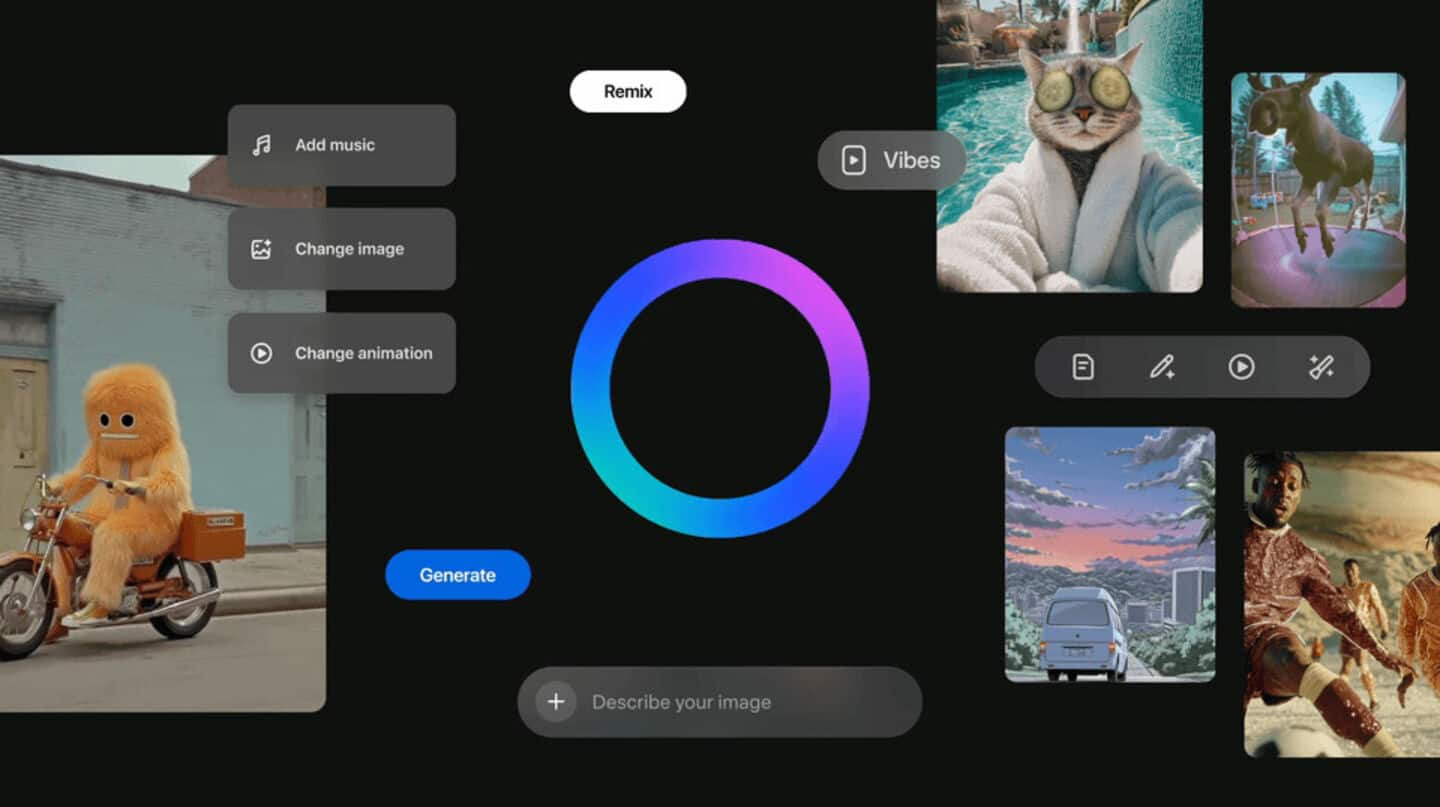
Meta launches Vibes as a TikTok-style feed of AI videos
What's the story
Meta has launched a new feature called "Vibes," a dedicated feed within the Meta AI app and on meta.ai. The platform is designed for sharing and creating short-form, AI-generated videos, similar to TikTok or Instagram Reels. However, all the content on Vibes is generated by artificial intelligence (AI). Mark Zuckerberg announced the launch of Vibes through an Instagram post featuring several AI-generated clips.
User experience
How does 'Vibes' work?
As users scroll through the new feed, they will encounter AI-generated videos from both creators and other users. Over time, Meta's algorithm will start curating personalized content for each user. The platform also allows users to create a video from scratch or remix an existing one they come across in their feed. Before sharing, they can add new visuals, music layers, and style adjustments to the video.
Sharing options
Cross-posting to Instagram and Facebook
Once a video is ready, users can share it directly on the Vibes feed or send it via direct message (DM) to others. The platform also supports cross-posting to Instagram and Facebook Stories and Reels. This feature expands the reach of user-generated content beyond just the dedicated Vibes feed, allowing for greater interaction and engagement across Meta's various platforms.
Mixed reactions
User reactions to 'Vibes'
The launch of Vibes has drawn a negative response from users. Many have expressed skepticism over the need for an AI-generated version of TikTok, with one user commenting "gang nobody wants this" on Zuckerberg's announcement post. The new feed is likely to be met with resistance from users, especially considering the proliferation of AI content on social media platforms due to advancements in AI technology.
Strategic shift
Meta's AI push
The launch of Vibes comes as Meta has been heavily investing in revamping its AI efforts. The company created an AI division called "Meta Superintelligence Labs" after some high-profile exits. It then reportedly reorganized this division into four groups focusing on foundation models, research, product integration, and infrastructure. This strategic shift shows Meta's commitment to staying competitive in the rapidly evolving field of artificial intelligence.